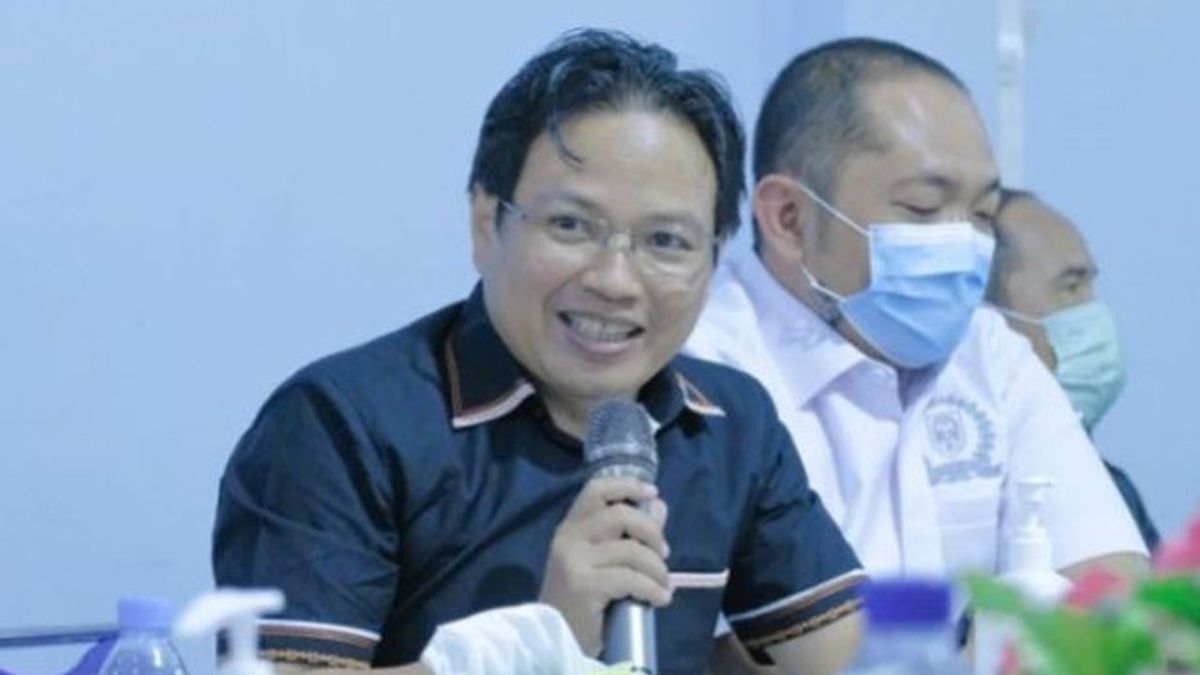JAKARTA - Secretary of Commission IV for Welfare at the South Kalimantan DPRD (South Kalimantan), which is also in charge of manpower, Firman Yusi SP, is of the opinion that the competitiveness of the workforce in the province is still low.
"To overcome the competitiveness problem in the regional medium-term development plan (RPJMD) of South Kalimantan 2021-2026, education and employment must collaborate," said Firman in Banjarmasin, quoted from Antara, Sunday, January 9.
"Because one of the problems faced by the people of South Kalimantan is the low level of competitive workforce. This was revealed after Pasis IV of the RPJMD held a meeting with a number of SKPD related to the ranks of the provincial government," he said.
In addition, in consultation with the National Development Planning Agency (Bappenas) of the Republic of Indonesia in Jakarta, January 7, the former member of the Tabalong Regency DPRD, South Kalimantan continued.
"Indeed, our Open Unemployment Rate (TPK) in South Kalimantan is lower than the national average, but the percentage of the population working based on education is dominated by those who do not have an elementary school diploma or an elementary school certificate," he added.
"Those who do not have an elementary school certificate are up to 44.56 percent. Meanwhile, 20.86 percent of those who don't have a junior high school certificate, 21.48 percent of high school diplomas, 3.72 percent of vocational schools and 9.34 percent of college students," he explained.
He hopes that the South Kalimantan RPJMD 2021-2026 will focus more on encouraging the absorption of the workforce with higher education levels, especially high school/vocational and university graduates.
"If you look at the data, it can be concluded that with the level of education not completing elementary school or only graduating from elementary school, it is certain that you are a laborer. The RPJMD 2021 - 2026 must be directed to encourage the focus of the South Kalimantan provincial government's workforce on efforts to improve the quality of human resources, especially in terms of human resources. competitive," he added.
Realizing all of that, according to him, requires concrete steps that are prepared by the South Kalimantan Provincial Government. One of them is by mapping the projected workforce needs in the future according to technological developments, regional conditions, especially welcoming South Kalimantan as the gateway to the National Capital City as well as local and global economic developments.
"We must use the results of this mapping to formulate our education policies, both formal and non-formal education to meet these needs," he said.
Even if necessary, he suggested, an evaluation of the implementation of vocational education is under the authority of the provincial government, considering that only 3.72 percent of workers in South Kalimantan have a vocational education background and 21.48 percent of high school education is required.
"Vocational schools should be designed to produce workers who are ready to work, but the data seems to show the opposite. Therefore, steps such as evaluating the available majors and adjusting the SMK curriculum to the development needs of the world of work are absolutely necessary," said Firman Yusi.
The English, Chinese, Japanese, Arabic, and French versions are automatically generated by the AI. So there may still be inaccuracies in translating, please always see Indonesian as our main language. (system supported by DigitalSiber.id)













